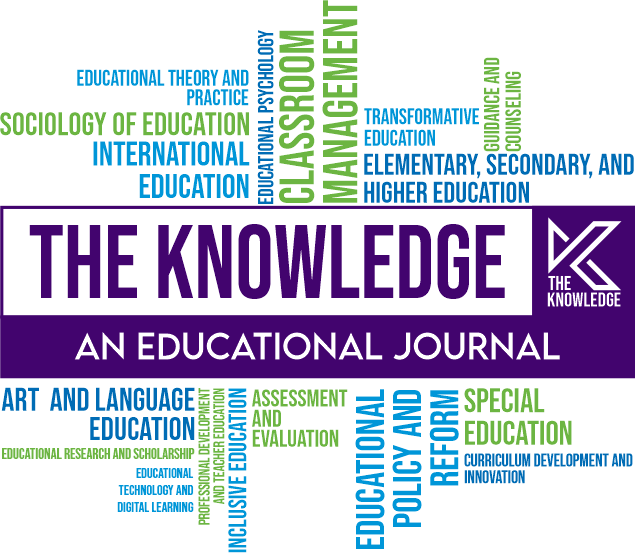Assessing the Professional Development Needs of University Supervisors in Balochistan: A Quantitative and Exploratory Study
DOI:
https://doi.org/10.55737/tk/2k25b.42057Keywords:
PhD Supervision, Professional Development, Higher Education, Balochistan, Logistic Regression, Institutional Policy, Gender, Higher Education Commission (HEC), Research CapacityAbstract
The success of postgraduate research supervision is critical to the assessment of academic success, institutional credibility and overall research potential of a nation. This research uncovers the professional advancement demands, the supervisory measures and institutional barriers encountered by public and private universities in Balochistan, Pakistan’s PhD supervisors. The study uses mixed methods in which structured data from supervisors’ survey (453) and qualitative data from semi-structured interviews are used. Based on constructivist and positivist approaches, the research assesses five elements that underlie effective supervision. efficiency of supervising, subject’s familiarity, access to institutions tools, supervision framework guidelines and student capacity. Analysis using descriptive statistics and binary logistic regression provides significant variables to measure perceived supervisor effectiveness as, use of expertise by the supervisor, student readiness, and transparent HEC regulations. However, the results show various obstacles, including insufficient funding of research, augmented administrative duties, and rigid institutional environs that do not allow supervisors to give quality mentorship. In particular, the female supervisors and private university supervisors may work with additional limitations as they tend not to have extensive institutional resources and recognition. This research suggests that claiming that the status of academic rank or qualifications is the only factor determining supervisory effectiveness is false. Professional development for supervisors requires systematic training, institutional support, manageable workloads, and a research-focused, egalitarian environment for continuous improvement. This research has significant implications for policymakers, university administration, and national education authorities wishing to strengthen postgraduate research supervision in the least developed academic environments of Pakistan.
References
Abbas, Z. (2019). The effect of performance based grant on research and development at Pakistani Public Universities (Doctoral dissertation, Universiti Tun Hussein Onn Malaysia).
Abbasi, M. U. R., Al-Azhari, Z. U., Bukhari, S. A. G., Awan, T. A., Akhtar, S., & Khokhar, M. F. (2021). Role of Higher Education Commission in promotion of Education in Global Perspective: Analytical Study of Higher Education System of Pakistan. Multicultural Education, 7(6). http://dx.doi.org/10.5281/zenodo.5008330
Abiddin, N. Z., Ismail, A., & Ismail, A. (2011). Effective supervisory approach in enhancing postgraduate research studies. International journal of humanities and social science, 1(2), 206-217.
Ali, P., Watson, P., & Dhingra, K. (2016). Postgraduate research students’ and their supervisors’ attitudes towards supervision. International Journal of Doctoral Studies, 11, 227-241. https://doi.org/10.28945/3541
Anderson, E. M., & Shannon, A. L. (1988). Toward a conceptualization of mentoring. Journal of Teacher education, 39(1), 38-42. https://doi.org/10.1177/002248718803900109
Cornforth, S., & Bird Claiborne, L. (2008). When educational supervision meets clinical supervision: what can we learn from the discrepancies?. British Journal of Guidance & Counselling, 36(2), 155-163. https://doi.org/10.1080/03069880801926426
Creswell, J. W. (2003). Research Design: Qualitative, Quantitative, and Mixed Method Approaches. Sage Publications, Thousand Oaks.
Creswell, J. W. (2012). Educational research: Planning, conducting, and evaluating quantitative and qualitative research (4th ed.). Boston, MA: Pearson.
De-Lange, N., Pillay, G., & Chikoko, V. (2011). Doctoral learning: A case for a cohort model of supervision and support. South African Journal of Education, 31(1), 15-30. http://dx.doi.org/10.15700/saje.v31n1a413
Deuchar, R. (2008). Facilitator, director or critical friend?: Contradiction and congruence in doctoral supervision styles. Teaching in higher education, 13(4), 489-500. https://doi.org/10.1080/13562510802193905
Elgar, F. (2003). PhD completion in Canadian universities. Final report. Halifax, Nova Scotia: Graduate Students Association of Canada. Retrieved May, 12, 2009.
Gardner, S. K. (2008). “What’s too much and what’s too little?”: The Process of Becoming an Independent Researcher in Doctoral Education. The Journal of Higher Education, 79(3), 326–350. https://doi.org/10.1080/00221546.2008.11772101
Graen, G. B., & Uhl-Bien, M. (1995). Relationship-based approach to leadership: Development of leader-member exchange (LMX) theory of leadership over 25 years: Applying a multi-level multi-domain perspective. The leadership quarterly, 6(2), 219-247. https://doi.org/10.1016/1048-9843(95)90036-5
Halse, C., & Malfroy, J. (2010). Retheorizing doctoral supervision as professional work. Studies in Higher education, 35(1), 79-92. https://doi.org/10.1080/03075070902906798
Khattak, S. (2022). The Field of Higher Education in Pakistan as Experienced by Faculty-A Bourdieusian Analysis (Doctoral dissertation, University of Toronto (Canada)).
Lee, A. (2008). How are doctoral students supervised? Concepts of doctoral research supervision. Studies in Higher Education, 33(3), 267–281. https://doi.org/10.1080/03075070802049202
Morgan, H. K., Purkiss, J. A., Porter, A. C., Lypson, M. L., Santen, S. A., Christner, J. G., Grum, C. M., & Hammoud, M. M. (2016). Student evaluation of faculty physicians: Gender differences in teaching evaluations. Journal of Women’s Health (2002), 25(5), 453–456. https://doi.org/10.1089/jwh.2015.5475
Pyhältö, K., & Keskinen, J. (2012). Doctoral students’ sense of relational agency in their scholarly communities. International Journal of Higher Education, 1(2). https://doi.org/10.5430/ijhe.v1n2p136
Pyhältö, K., Vekkaila, J., & Keskinen, J. (2012). Exploring the fit between doctoral students’ and supervisors’ perceptions of resources and challenges vis-à-vis the doctoral journey. International Journal of Doctoral Studies, 7, 395–414. https://doi.org/10.28945/1745
Vanstone, M., Hibbert, K., Kinsella, E. A., McKenzie, P. J., Pitman, A., & Lorelei, L. (2013). Interdisciplinary doctoral research supervision: A scoping review. Canadian Journal of Higher Education, 43(2), 42–67. https://doi.org/10.47678/cjhe.v43i2.2403
Wisker, G., McGinn, M. K., Bengtsen, S. S. E., Lokhtina, I., He, F., Cornér, S., Leshem, S., Inouye, K., & Löfström, E. (2021). Remote doctoral supervision experiences: Challenges and affordances. Innovations in Education and Teaching International, 58(6), 612–623. https://doi.org/10.1080/14703297.2021.1991427
Downloads
Published
Issue
Section
License
Copyright (c) 2025 Copyright in the THE KNOWLEDGE is retained by the author(s). Authors also grant any third party the right to use the article freely as long as its integrity is maintained and its original authors, citation details and publisher are identified.
This work is licensed under a Creative Commons Attribution-NonCommercial 4.0 International License.







